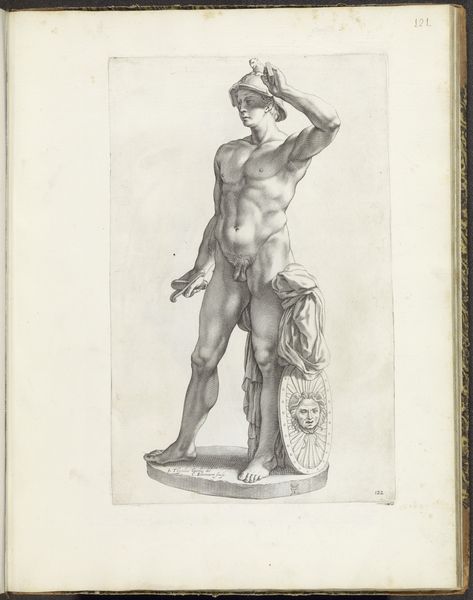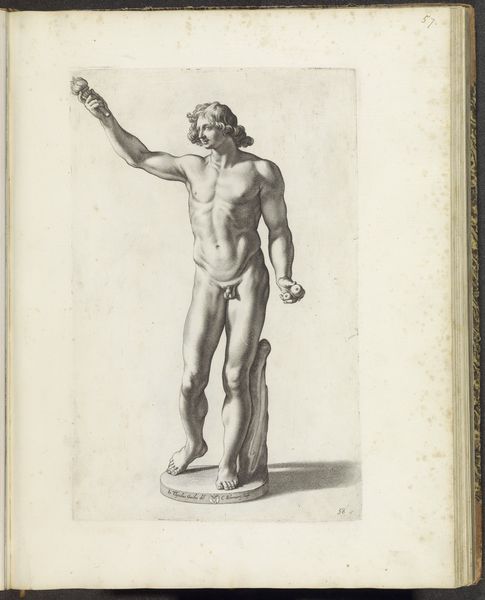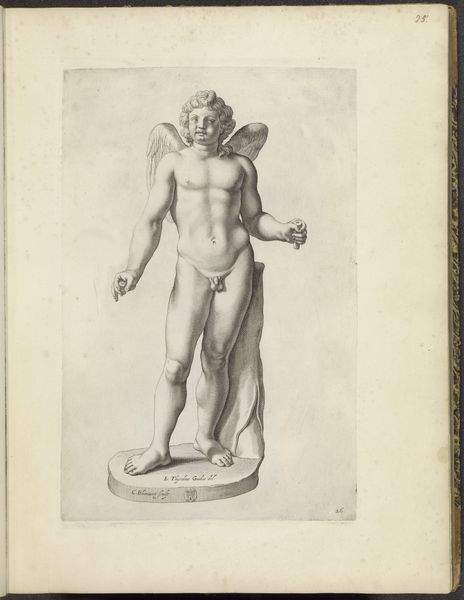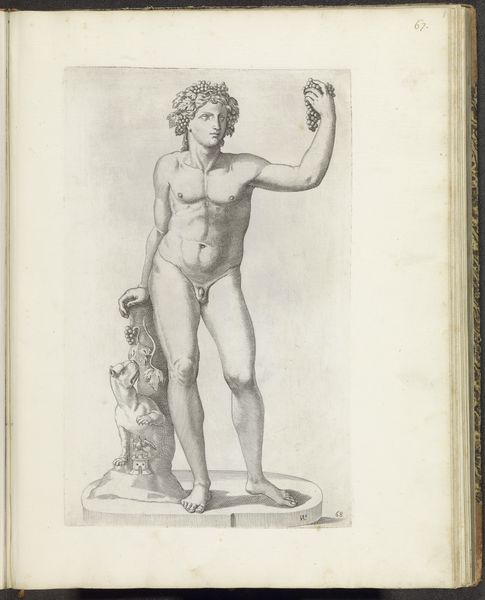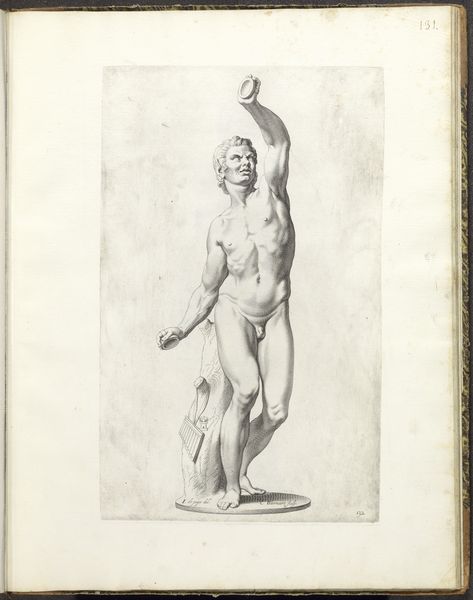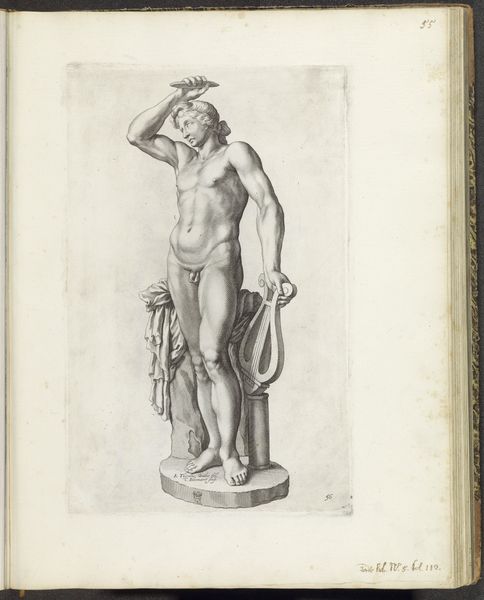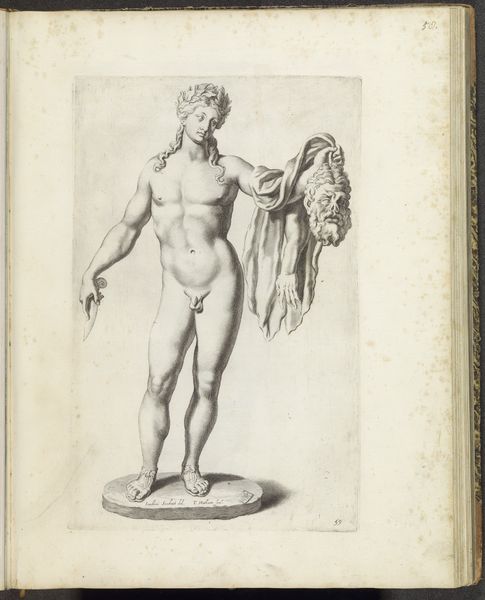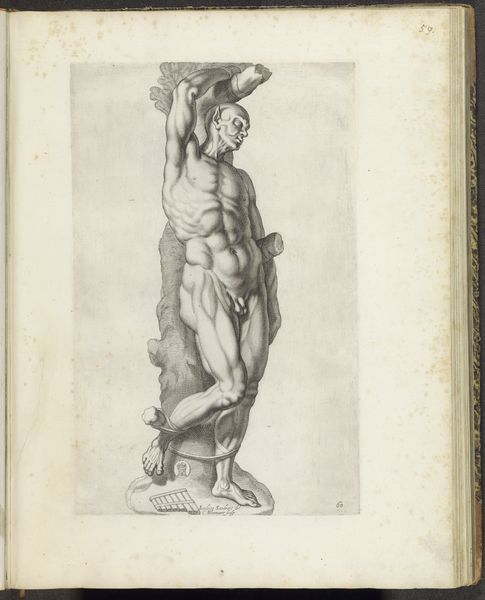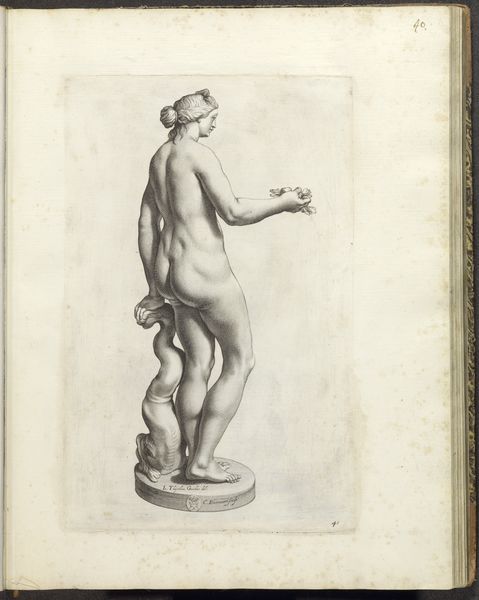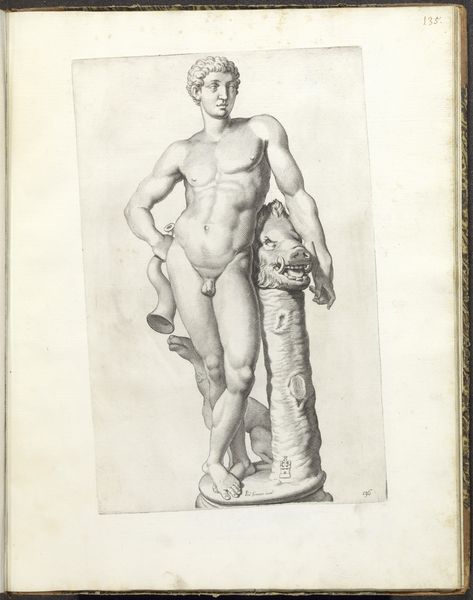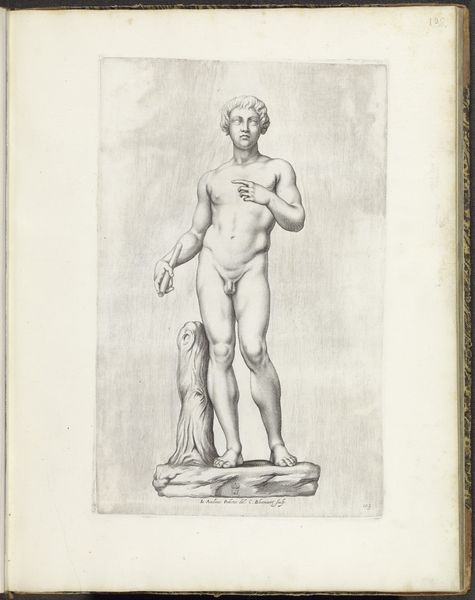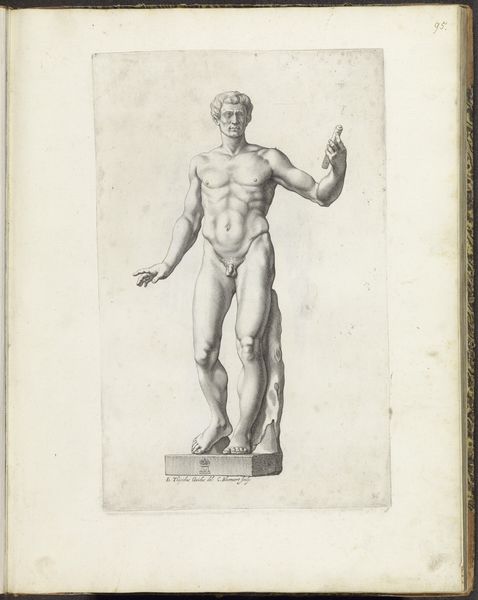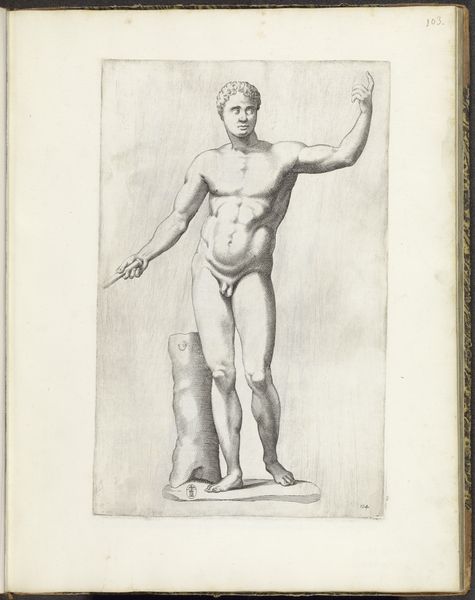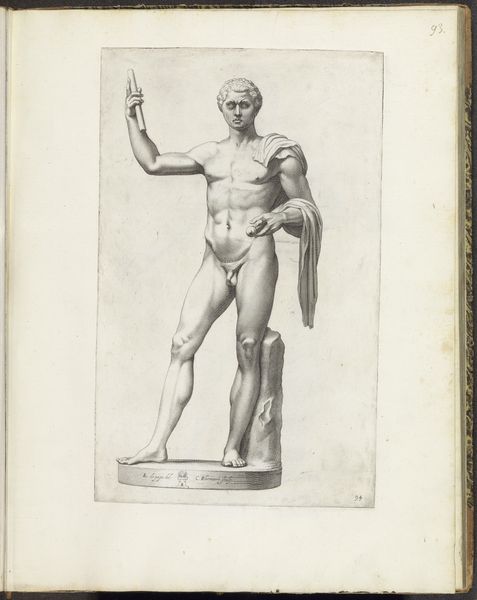
print, engraving
#
portrait
#
baroque
# print
#
classical-realism
#
history-painting
#
academic-art
#
nude
#
engraving
Dimensions: height 370 mm, width 236 mm
Copyright: Rijks Museum: Open Domain
Editor: Here we have Cornelis Bloemaert’s engraving, "Statue of Apollo with Lyre and Drape," dating from 1636 to 1647. The stark contrast of light and shadow is striking. How do you interpret this work, focusing on the formal aspects? Curator: The engraving’s power lies in its precise linearity and stark contrasts, which define the figure of Apollo. Note how Bloemaert uses hatching and cross-hatching to model the god's musculature. The lyre, almost an extension of Apollo’s form, functions as both attribute and structural support. Observe how the drape provides both contrast to the nude figure and compositional balance. Editor: It’s interesting how the lyre echoes his body’s curves. Why do you think the artist chose to depict him nude? Curator: Nudity in art serves to strip away superficiality and focus on the idealized form. In the formal sense, it allows Bloemaert to showcase his skill in rendering the human anatomy, emphasizing the lines, volume, and interplay of light and shadow across the body. Consider the implications of the texture too; how does the smoothness of Apollo's skin contrast to the rough carving on the support? Editor: So it's less about the historical context and more about the artistic expression of form and technique? Curator: Precisely. While context can inform, the artwork's power emerges from the manipulation of formal elements and visual language. It asks us to focus on the "how" rather than the "why." This piece invites close viewing, rewarding analysis of line, light, and form. Editor: That makes the work much more accessible and less intimidating, I think. Thank you for illuminating those artistic components for me. Curator: You're most welcome. Formal analysis provides an invaluable key for decoding the language of art.
Comments
No comments
Be the first to comment and join the conversation on the ultimate creative platform.
